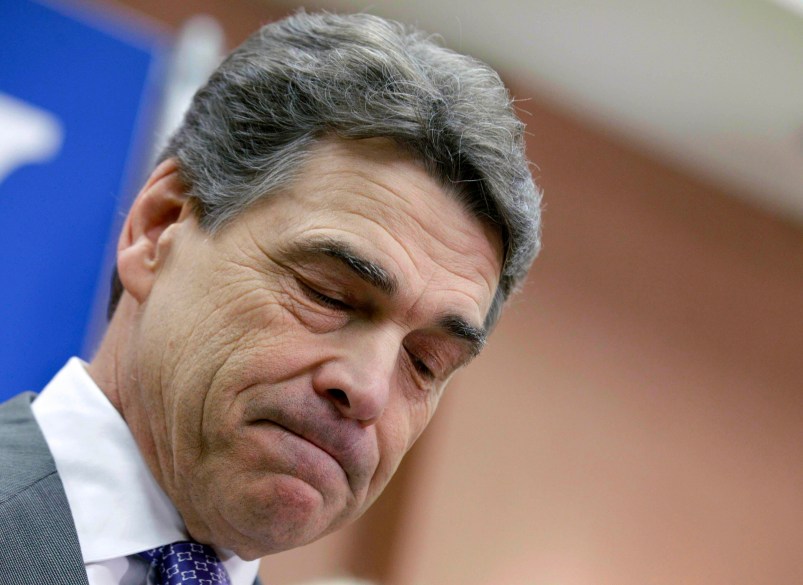Obamacare advocates are actively recruiting those left out of the Medicaid expansion in Republican-controlled states to lobby state officials to change their minds and participate in that key provision of the health care reform law.
So far, the effort is most organized in Texas, which is also the state with the most people in that Medicaid expansion gap: 1 million. But it’s likely to pick up elsewhere as the Obama administration and outside advocates apply pressure to the 25 states that have resisted expansion for the first year.
Texas Left Me Out, the combined effort of several community groups, is a website designed to collect those people’s stories and organize them into a cohesive political action constituency. It asks those in the Medicaid gap to sign a petition to stay informed about advocacy events and share their story on the site.
Are they going to turn Texas blue on the backs of people who have traditionally been ignored by Republicans? Are they going to convince an anti-Obamacare stalwart like Rick Perry to buy into the law? That’s a tough sell. But they’re going to try.
“When you personalize a policy, when you make it real, it’s always much more powerful. It’s always going to resonate,” Tiffany Hogue, state health care campaign coordinator at the Texas Organizing Project, one of the groups involved with the campaign, told TPM. “People have really have awakened to the fact that people really are getting left behind.”
Texas Left Me Out had a soft launch in October in preparation for a January rollout. The Texas Organizing Project says it has already contacted 100,000 people who are in the gap and convinced 20,000 to commit to be part of the campaign. They hope that those numbers will grow substantially before the Texas legislature reconvenes in 2015, its next opportunity to expand Medicaid under Obamacare. They’ve set recruitment targets for specific legislative districts to focus their efforts.
The broader coalition is also eyeing the 2014 elections. The presumed Democratic frontrunner for governor, state Sen. Wendy Davis, has enthusiastically endorsed expansion, and a more Democratic legislature would also be more likely to sign onto a major piece of the health care reform law.
The strategy is simple: sheer political force. They’ll ask people to turn up at legislative committee hearings and stage protests at the state capitol. Conference calls and press conferences will be the norm. They aren’t waiting for 2015 either. A group is going to a state insurance department meeting Dec. 20 to rally for expansion.
Those left out of the expansion are receptive to the effort. Irma Aguilar, a separated mother of four who lives in San Antonio and has been recruited by the Texas groups, said it was a “a real shocker” when an Obamacare canvasser came to her house to explain her options to her under the law, only to find out that her income as an assistant manager at Pizza Hut was too low to qualify for financial assistance to purchase private insurance and she couldn’t sign up for Medicaid because Perry and the GOP-led legislature had rejected the expansion.
“They didn’t want to take that extra money to help us poor people back here,” she told TPM. “What about us back here? It’s really hard. I thought with this law, they would try to work to help everybody, but apparently not. They just think of themselves. They’ve just let us struggle.”
A 28-year-old with high blood pressure and back problems, Arguilar’s story is exactly the kind that advocates hope to use to persuade Republican state leaders. It might not work on its own — it didn’t in 2013 — but that human interest angle paired with the business case that high-powered lobbying groups like the Texas Hospital Association will make is seen as a potentially winning formula by those pushing for expansion. They’ll be arguing that drawing down on billions in federal funds will be a boon for the state’s economy.
It’s likely to spread beyond Texas, too. The White House has already called out 11 non-expanding states in conference calls and events with local officials, using the two-pronged argument of extending health coverage to the uninsured as well as bringing in those billions of Medicaid dollars to advocate for expansion.
Asked by TPM on one of those conference calls if those in the gap could be morphed into a powerful political constituency in North Carolina, one of the targeted non-expanding states, Durham, N.C., Mayor Bill Bell said he thought they could be.
“People are concerned. People are hurting,” Bell said. “If they see a governor, they see a legislature, that is not coming to their rescue when they can at no cost to them, I think people are going to see the repercussions when it comes around to the voting next year.”






